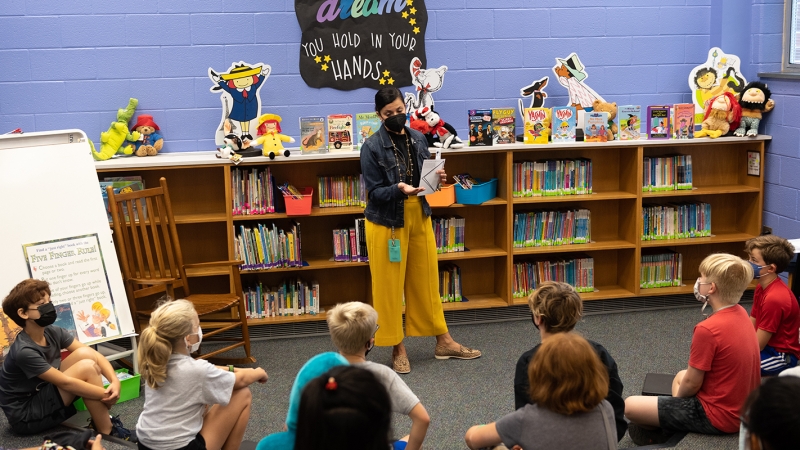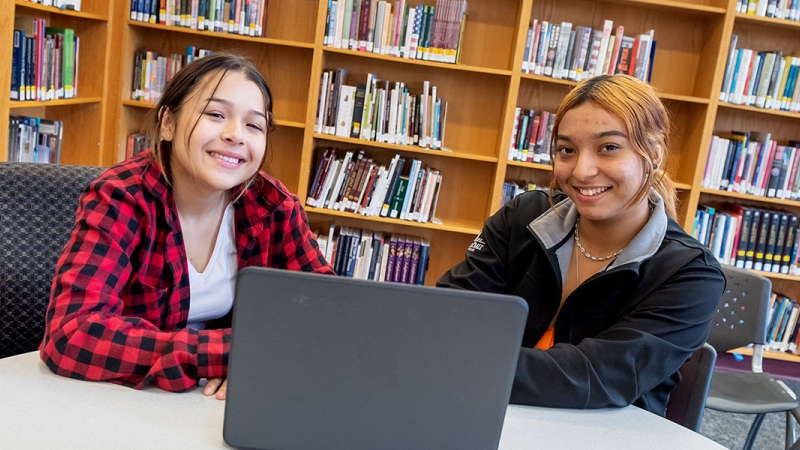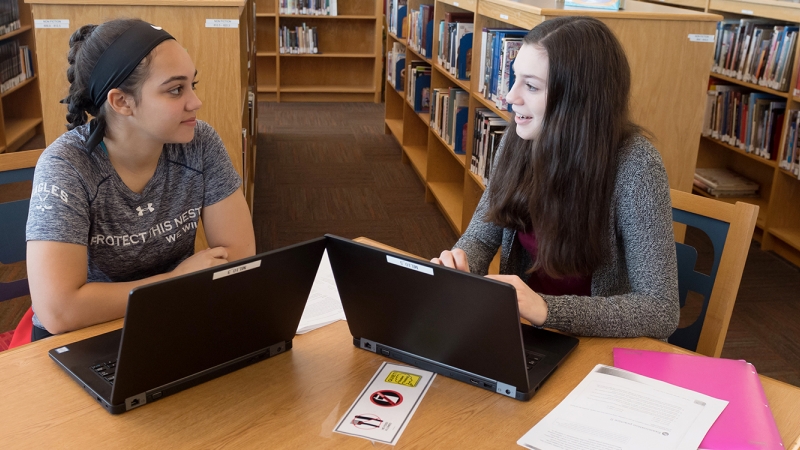
Equitable Access to Literacy Will Transform Learning for Every Child
Fairfax County Public Schools (FCPS) is launching an ambitious initiative that will provide students with the education and support they need to develop the reading and writing skills necessary for success in school and life. The Equitable Access to Literacy Plan will transform learning for all students from PreK through graduation.
FCPS is making immediate changes at the elementary level, including curriculum development designed to support literacy across courses and grade levels, as well as the creation of staff professional development. Plans call for the purchase of resources to support this critical work and the use of data to measure progress and direct future action.
The Equitable Access to Literacy Plan, based on a commitment to educational equity, is designed to close the opportunity gap in literacy for students with disabilities, English Learners, economically disadvantaged students, Black, and Hispanic students.
“This is tremendous work,” says Dr. Scott Brabrand, FCPS Superintendent. “It will take time and effort but the reward, success for every student, is worth it. And it is what we as educators are driven to do.”
Impact of Literacy
Data presented by FCPS and literacy experts show the urgent need for a new approach to literacy education. Literacy has a strong impact on overall academic success, economic well being, health outcomes, social participation, and civic engagement.
Emily Solari, Ph.D. and coordinator of the University of Virginia’s Reading Education Program, explains that reading difficulties in lower grades have a consistent impact on a student’s academic future. Children who have difficulty reading in early elementary school, continue to have difficulty and are more likely to leave high school without a diploma. In addition, reading skill in early grades has a positive impact on social-emotional development.
Data Trends
Data from before the start of the pandemic shows about 40% of students in the general population were already below grade level. Pandemic learning, relying mostly on virtual instruction, led to even more students experiencing reading and writing difficulties.
When factoring in student demographics, the number of students lacking literacy skills increases both before the pandemic and after. Students of color, English language learners, and students with disabilities have higher rates of below-grade-level reading ability than their peers.
FCPS’ data follows the trends shown in state and national research— there are significant and persistent gaps among subgroups, and every student, across all grades, has room to grow.
“Literacy is ultimately an equity issue,” Brabrand says. “And equity is the core mission of public education. We are committed to providing equitable access to literacy across all grade levels and for all students so that in FCPS, every student has a bright future.”
FCPS recognized the need for a fundamental shift in the approach to literacy education prior to the pandemic. In early 2020, responding to the pandemic temporarily delayed the division’s work in this area. Now, that work resumes with plans to address immediate needs and establish a large-term approach to literacy education.
Visit the FCPS website for more information about the Equitable Access to Literacy Plan, including updates and the initial presentation to the School Board.







